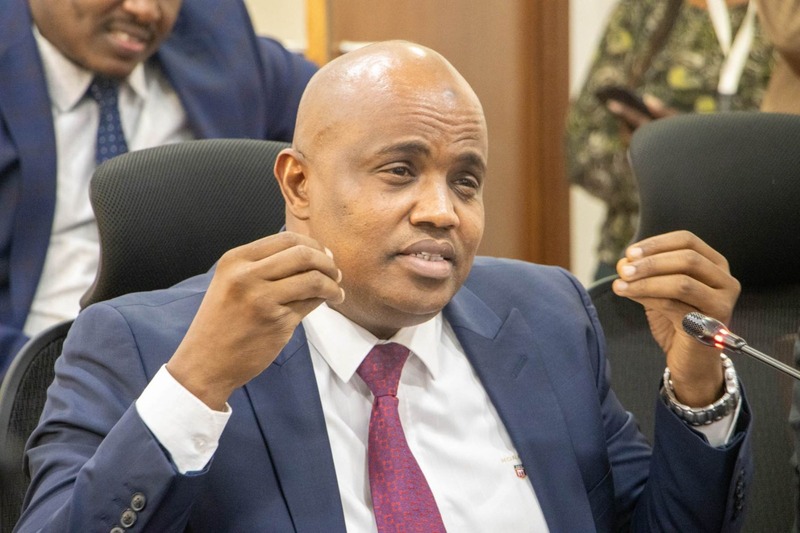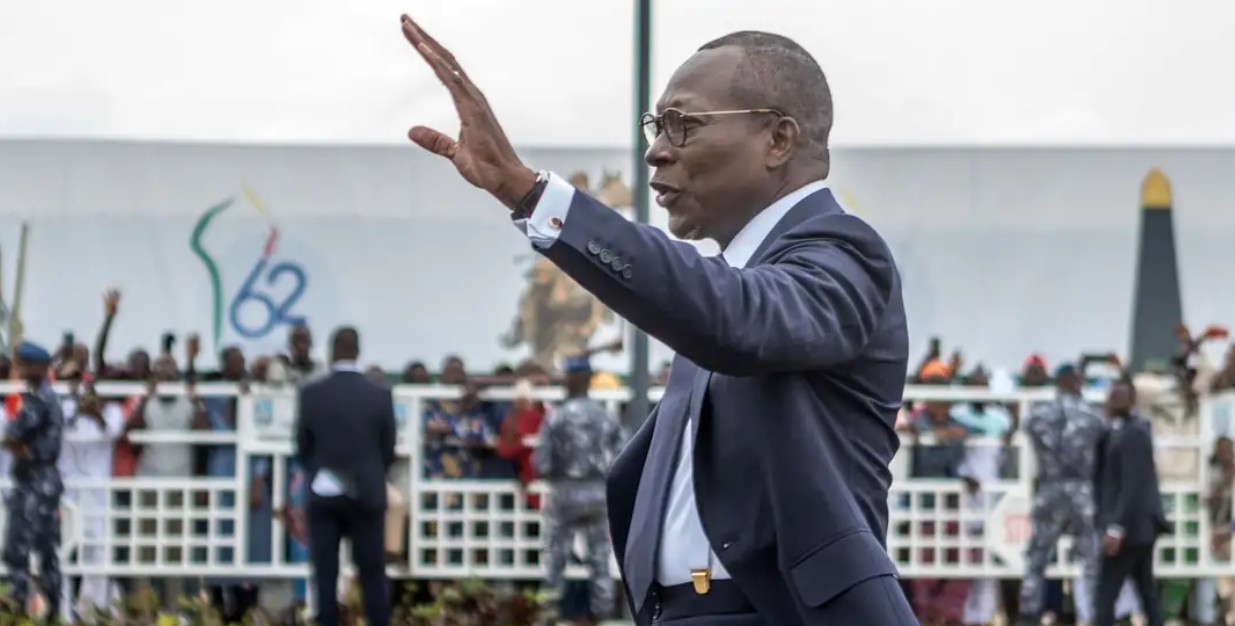Treasury seeks views on new Sovereign Wealth Fund Bill targeting national savings, strategic investment

The proposed law divides the fund into three components to shield the economy from revenue shocks, finance strategic projects and secure resources for future generations.
Treasury seeks views on new Sovereign Wealth Fund Bill targeting national savings, strategic investment
Kenyans have until November 7, 2025, to comment on the draft Kenya Sovereign Wealth Fund Bill, 2025, which aims to establish a public fund for national savings and strategic infrastructure investment.
More To Read
- Parliament urged to rein in fiscal indiscipline as audit flags misuse of public funds
- World Bank warns of mounting fiscal pressure as Kenya faces debt distress risk
- New e-procurement system to fight graft, save Kenyans Sh50bn annually - Treasury
- National Treasury raises Sh71.4 billion from bond sale, exceeding target
- CBK raises Sh48.5 billion in oversubscribed bond sale as interest rates fall
- How chamas have helped women grow their savings despite some risks
The proposed law divides the fund into three components to shield the economy from revenue shocks, finance strategic projects and secure resources for future generations.
The National Treasury, in consultation with other stakeholders, has invited members of the public, the National Government, County Governments, non-governmental organisations, civil society, professional bodies, private sector players, religious groups and other stakeholders to submit comments that will inform the finalisation of the Bill.
“Please do not be left out in the development of this important Bill for our country. The draft Bill is available at the National Treasury website: www.treasury.go.ke. Please share your comments through the email address: [email protected] or send hard copies addressed to the undersigned not later than Friday, November 7, 2025,” reads the notice from Cabinet Secretary John Mbadi.
The Bill seeks to establish the Kenya Sovereign Wealth Fund, with legal ownership vested in the National Treasury in trust for Kenyans. The fund will be managed for the benefit of both current and future generations and will comprise three components, including the Stabilisation Component, the Strategic Infrastructure Investment Component and the Future Generation (Urithi) Component.
According to the draft Bill, each component will maintain a separate account at the Central Bank of Kenya.
The Stabilisation Component is intended to provide a buffer against fluctuations in resource revenues and manage extraordinary macroeconomic shocks. According to the Bill, withdrawals from this component require a written request from the Cabinet Secretary to the Board, which then authorises the Central Bank of Kenya to transfer funds to the Consolidated Fund. Transfers will cease when the component reaches five per cent of nominal GDP, with excess funds used for debt servicing or transferred to the other components.
The Strategic Infrastructure Investment Component will fund projects aligned with national and county development plans, including agriculture, transport, housing, energy, water, education and health. The Bill notes that withdrawals from this component will only be made against approved budget estimates or as permitted under Article 223 of the Constitution.
"Remaining balances may be reinvested in qualifying instruments following Board resolutions," reads the draft Bill.
The Urithi Component aims to build savings for future generations, generating alternative income streams to support capital projects when revenues from minerals and petroleum are depleted. Transfers from Urithi are limited strictly to investments as set out in the Act.
In the event of significant depletion of mineral and petroleum resources, the Bill notes that balances of all three components will be consolidated into a single account of the Kenya Sovereign Wealth Fund. Future withdrawals will be limited to earnings and dividends from the accumulated principal, to finance strategic infrastructure projects approved by Parliament.
The fund will operate under the Public Finance Management Act, with fiscal responsibility principles guiding withdrawals. The Chief Executive Officer will administer the fund, preparing quarterly financial statements and annual reports for audit by the Auditor General. The Bill highlights that budget documents must include estimated resource revenues and planned expenditure from the fund.
The Kenya Sovereign Wealth Fund Board, based in Nairobi, will oversee management. Its composition includes a chairperson appointed by the President, the National Treasury Principal Secretary or alternate, the Central Bank Governor or alternate, four independent members appointed by the Cabinet Secretary and the CEO as an ex officio member without voting rights. The Board will be responsible for investment, policy development, performance monitoring and staff recruitment, among other duties.
"Appointments must respect gender and ethnic diversity requirements," reads the draft Bill.
It further indicates that board members and the CEO may resign or be removed for non-performance, criminal conviction, prolonged incapacity or other specified reasons. Staff will also be mandated to adhere to the public service code of conduct, and members will be protected from personal liability for acts done in good faith under the Act.
The Fund also imposes strict investment rules, such as it cannot be used to provide loans, advances or as collateral, and must avoid speculative or non-qualifying instruments. Investments should also balance risk and return, be prudently managed and protect public interest and macroeconomic stability.
“The National Treasury encourages all stakeholders to participate in shaping this critical legislation for Kenya’s economic future,” reads the notice.
Top Stories Today















































